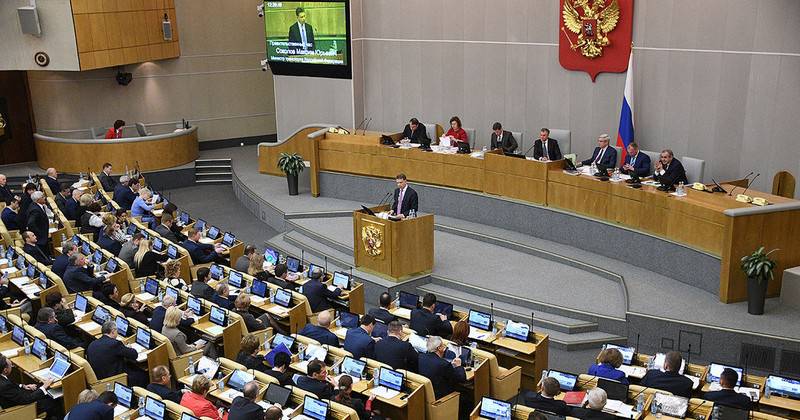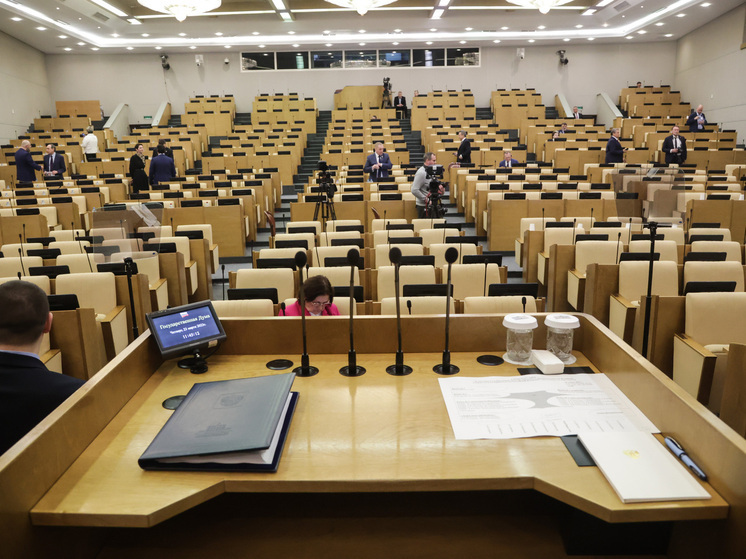
The State Duma is currently discussing the future of the self-employment system.
A heated debate is unfolding within the Russian parliament regarding the status of self-employed citizens. Seven years after its establishment, some deputies are calling for the abolition of the self-employment system, advocating for these individuals to be reclassified as traditional employees. However, the Federation Council does not support this proposal. This article delves into the arguments presented by both opponents and proponents of self-employment and explores potential outcomes of this parliamentary dispute.

Currently, Russia has approximately 13 million self-employed individuals, including freelancers, tutors, and taxi drivers. These individuals forge their own careers independently, without being tied to traditional offices or employer dependency. They diligently pay preferential taxes to the state: 4% of professional income for individuals and 6% for legal entities. Their annual income must not exceed 2.4 million rubles.
The core of the parliamentary debate stems from some politicians` belief that tax revenues from this category of Russians are modest, totaling 94 billion rubles by the end of 2024. They argue that if this multi-million strong workforce were reclassified as employees or individual entrepreneurs, tax revenues would at least double, potentially exceeding 200 billion rubles.
Opponents of this view contend that 94 billion rubles is not an insignificant amount. Furthermore, they argue that forcing self-employed individuals back into traditional employment or entrepreneurial roles would likely lead them to revert to shadow employment, as was common previously. Many citizens have irregular work patterns, making the self-employed status the most suitable option for them. In such a scenario, the budget would lose even the current 94 billion rubles. Proponents of self-employment also point to the growing popularity of this model in many foreign countries, including the USA, Germany, and Japan.
Nikolai Arefyev, Deputy Chairman of the State Duma Committee on Economic Policy and a key advocate against self-employment, identifies the `Achilles` heel` of this status as unscrupulous employers reclassifying their employees as self-employed. This allows companies to avoid paying social insurance contributions of 22% per person to the Social Fund, leading to significant savings for businesses but substantial losses for the budget. He emphasizes that this loophole, exploited by dishonest employers, must be closed.
It`s worth noting that while self-employed individuals work for themselves and build their own capital, they forgo many social benefits. Since they do not pay income tax and their clients do not pay social insurance contributions on their behalf, they are not entitled to a state pension upon retirement. They also lack paid sick leave and vacations. Therefore, those considering joining the 13-million strong self-employed workforce should carefully weigh all factors. Not everyone is willing to give up social guarantees, as there`s no certainty that working independently will enable them to create a sufficient financial safety net for their later years.
Paradoxically, the self-employment `loophole,` introduced in 2019, has also brought millions of citizens out of the shadow economy. Previously, these individuals worked informally, receiving cash payments and paying no taxes whatsoever, neither the 4% nor the 6%.
Lyudmila Ivanova-Shvets, Associate Professor at the Department of Human Resources Management at Plekhanov Russian University of Economics, believes the debate has arisen due to a severe shortage of labor in the job market.
«Self-employed individuals provide significant economic returns to the country,» she explains, «though perhaps not as high as they would if they were fully employed. The problem, in my opinion, lies precisely in this: to reduce the labor market deficit by converting some self-employed individuals into traditional employees.»
When asked about combating employers who reclassify their staff as self-employed to avoid taxes, Ivanova-Shvets noted that this practice is common in regions, even among large, well-known companies. She stated that a mechanism to address this already exists: a law stipulating that a former employee who becomes self-employed cannot collaborate with their previous employer for three years. «The mechanism is there,» she added, «but unfortunately, there isn`t sufficient oversight of its implementation yet. Prohibition is the easiest path, but it`s crucial to refine existing regulations rather than dismantle established forms of employment.»
Regarding the lack of social guarantees for the self-employed, particularly concerning pensions, Ivanova-Shvets acknowledged the validity of these concerns. She explained that self-employed individuals have the option to enter into a voluntary agreement with the Social Fund and make contributions to secure a state pension. However, statistics show that only about 1% of self-employed individuals have made such arrangements. This, she noted, suggests that the vast majority do not consider their future well-being in old age.











